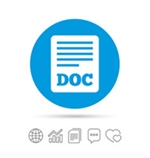PEMANFATAAN MEDIA SOSIAL FACEBOOK SEBAGAI STRATEGI KOMUNIKASI POLITIK
Abstract
Full Text:
PDFReferences
Borah, P. (2016). Political Facebook use: Campaign strategies used in 2008 and 2012 presidential elections. Journal of Information Technology and Politics, 13(4), 326–338. https://doi.org/10.1080/19331681.2016.1163519
Bryman, A. (2012). Social Research Methods. The British Journal of Psychiatry (4th Editio). Oxford: Oxfod University Press. https://doi.org/10.1192/bjp.111.479.1009-a
Dewi, R. K. (2019). Jelang Pemilu, Line dan Facebook Hadirkan Fitur untuk Kenali Kandidat. Retrieved January 19, 2020, from https://nasional.kompas.com/read/2019/04/10/18595661/jelang-pemilu-line-dan-facebook-hadirkan-fitur-untuk-kenali-kandidat?page=all
Hong, S., & Nadler, D. (2011). Does the early bird move the polls? The use of the social media tool “Twitter” by U.S. politicians and its impact on public opinion. ACM International Conference Proceeding Series, 182–186. https://doi.org/10.1145/2037556.2037583
Hong, S., & Nadler, D. (2012). Which candidates do the public discuss online in an election campaign?: The use of social media by 2012 presidential candidates and its impact on candidate salience. Government Information Quarterly, 29(4), 455–461. https://doi.org/10.1016/j.giq.2012.06.004
Irawan, R. E. (2014). POPULARITAS POLITIKUS: ANTARA KERJA POLITIK ATAU KEHEBATAN TELEVISI. HUMANIORA, 5(9), 1032–1036.
Lin, H. C. (2017). How political candidates’ use of facebook relates to the election outcomes. International Journal of Market Research, 59(1), 77–96. https://doi.org/10.2501/IJMR-2017-004
McNair, B. (2003). An Introduction to Political Communication. New York: Routledge.
Muijs, D. (2004). Doing quantitative research in education with SPSS. British Journal of Educational Technology (Vol. 36). California: Sage Publications. https://doi.org/10.1111/j.1467-8535.2005.00465_12.x
Spierings, N., & Jacobs, K. (2014). Getting Personal? The Impact of Social Media on Preferential Voting. Political Behavior, 36(1), 215–234. https://doi.org/10.1007/s11109-013-9228-2
Strömbäck, J., & Kiousis, S. (2014). 6 Strategic political communication in election campaigns. Political Communication, (January). https://doi.org/10.1515/9783110238174.109
Suprajang, S. E., Nirwanto, N., & Firdianjah, A. (2017). The Influence of Social Media and Service Quality on Satisfaction and Loyalty. In International Conference “Sustainable Development Goals 2030 Challenges and Its Solutions" (Vol. 1, pp. 245–257). https://doi.org/10.1108/TQM-11-2012-0092
Taherdoost, H. (2018). Sampling Methods in Research Methodology; How to Choose a Sampling Technique for Research. SSRN Electronic Journal, (September). https://doi.org/10.2139/ssrn.3205035
The Jakarta Post. (2018). Indonesia, fourth highest number of Facebook users in the world. Retrieved January 19, 1BC, from https://www.thejakartapost.com/life/2018/03/04/indonesia-fourth-highest-number-of-facebook-users-in-the-world.html
Victor, O., Ikechukwu, U., Gerald, N., & Chinedum, O. (2017). Effects Of The Social Media In The Marketing Of Political Candidates In Nigeria. British Journal of Marketing Studies, 5(6), 15–32.
Yousif, R. O., & ALsamydai, M. J. (2012). The Impact of the Political Promotion via Facebook on Individuals’ Political Orientations. International Journal of Business and Management, 7(10). https://doi.org/10.5539/ijbm.v7n10p85
Zeng, D., Chen, H., Lusch, R., & Li, S. H. (2010). Social media analytics and intelligence. IEEE Intelligent Systems, 25(6), 13–16. https://doi.org/10.1109/MIS.2010.151
Zhang, L., & Peng, T. Q. (2015). Breadth, depth, and speed: Diffusion of advertising messages on microblogging sites. Internet Research, 25(3), 453–470. https://doi.org/10.1108/IntR-01-2014-0021
DOI: https://doi.org/10.35308/source.v6i1.1552
Refbacks
- There are currently no refbacks.
SOURCE: Jurnal Ilmu Komunikasi indexed by:






Jurnal SOURCE is licensed under a Creative Commons Attribution-ShareAlike 4.0 International License.






